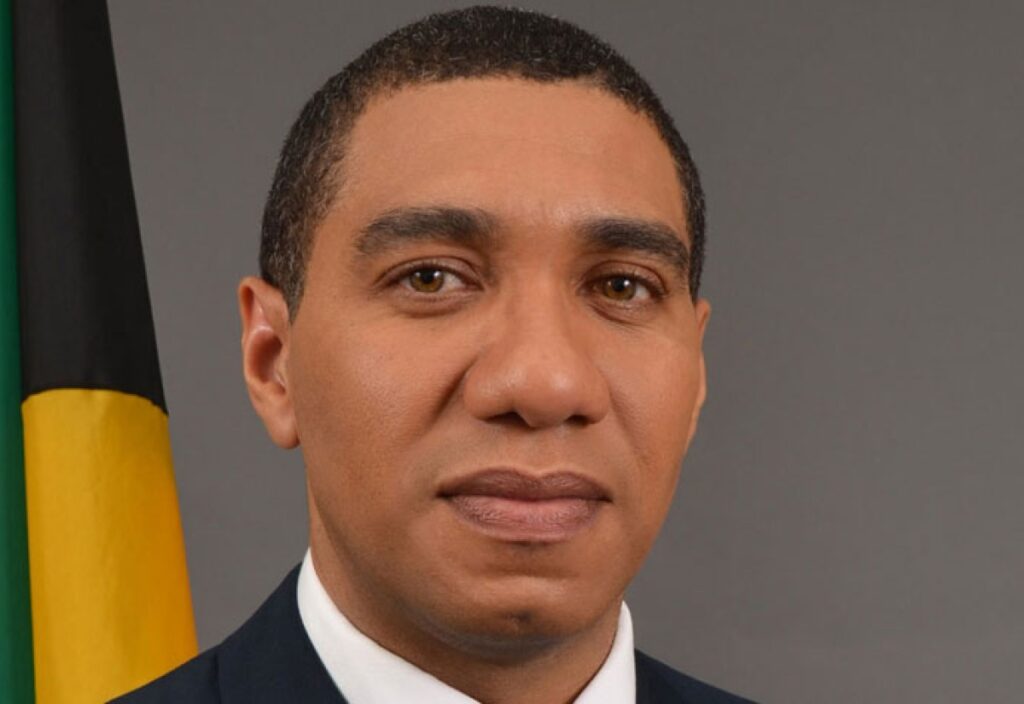Prime Minister Andrew Holness’ Statutory Declaration Debacle
Accountant and president of the United Independents’ Congress of Jamaica (UIC), Joseph Patterson, insists that the Tax Administration Jamaica (TAJ) and the Financial Investigations Division (FID) are duty-bound to investigate Prime Minister Andrew Holness’ finances, even without the support of parliament, given the findings of the Integrity Commission’s investigation into his statutory declarations.
In a 171-page report conducted by the Integrity Commission’s (IC) Director of Investigation, Kevon Stephenson, concerns were raised about the tax compliance of three companies—Imperium, Positive Media, and Estatebridge—that have been linked to Holness. It was revealed that there have been almost half a billion dollars in transactions for the three companies that filed nil tax returns.
The commission said “there can be no finality” in the certification of the prime minister’s assets for 2019-2022 without further probe by the FID and urged parliament to support Stephenson’s referral.
“The commission reminds parliament that, in keeping with the provisions of the Integrity Commission Act, there can be no certification of a statutory declaration until the commission’s director of information and complaints is satisfied that the statutory declaration has been duly completed. Once he is so satisfied, he will inform the commission,” the commission said.
Patterson believes that the IC’s role should be to do the investigations, present the findings, and then determine whether the prime minister should be prosecuted. Even so, now that the findings have been presented to the general public and concerns have been raised, the TAJ and FID should be doing their investigation regardless of parliament’s approval.
“Nobody needs to refer to them. They see the news item like the rest of us, and if it appears as if there is tax evasion or tax fraud or anything of that nature, then the TAJ should act on it,” said Patterson, who presides over Jamaica’s third political party.
“From the financial institution standpoint, those responsible for evaluating financial misconduct or financial fraud, or financial shenanigans, it’s their job also as a taxpayer agency on behalf of the taxpayers, without further instigation from anyone, should evaluate and assess whether action should be taken,” he told Freedom Come Rain.
President of the Senate, Tom Tavares-Finson, has asserted that neither the IC nor the parliament have the authority to refer anyone for investigation to the FID. The Jamaica Labour Party (JLP), which Holness leads, has also taken issue with IC referring its report on the prime minister’s income and assets to the FID.
In pointing out that Jamaica is a very corrupt country, Patterson said the constitution reform process needs to consider how to separate the different arms of government to minimise conflict of interest. This, he said, is essential for maximum transparency, greater accountability, and a reduction in corruption.
“With the government having exceptional powers and corruption being the norm in our society, then it is not too hard to imagine that these entities may not act in the best interest of the citizens but act according to the political directorate,” he said.
“You cannot continue to have your legislative and your executive branches being co-mingled. You cannot have a situation where your prime minister is vested with so many powers, even having so many ministries under himself. Power corrupts and absolute power corrupts absolutely, so the more power you vest in one person or one entity, or one party, is the more you are calling for corruption,” he argued.
Patterson has taken note of the fact that the IC Director of Corruption Prosecutions, Keisha Prince-Kameka, has ruled out criminal charges against Holness, citing insufficient evidence regarding the non-disclosure of four bank accounts connected to him. The UIC president suspects there will be a lot of speculation going forward and has taken issue with the length of time the IC has taken to conduct its investigation. The fact that it is referring the prime minister to other entities for further investigation while ruling that he should not be charged sends a mixed signal.
But vice president of the Association of Christian Communicators and Media (ACCM), Byron Buckley, has commended the IC for its efforts in conducting the investigations.
“The ACCM certainly would want to commend the Integrity Commission for sticking to this particular investigation of the Prime Minister’s assets and liabilities. It is noteworthy. In some other countries, they would probably have abandoned that along the way. The fact that they have stuck to this task over the last couple of years speaks good about governance and accountability, certainly [in regards] to the drive against corruption,” he said.
Following investigations, Stephenson confirmed that Holness had omitted four bank accounts, rendering his declaration “incomplete and inaccurate,” which is contrary to the Integrity Commission Act. The IC investigation was triggered by a September 2022 referral from the commission’s commissioners, who had noted Holness’ net worth growth of millions of dollars over five years ending December 2021. However, Prince-Kameka declined to charge Holness on the basis that it would be challenging to establish that the omission of the four bank accounts linked to his father, mother, and a former constituency office worker was intentional, although his name was linked to them.
Although the IC investigation raised significant questions about the income-generating capacity of the companies linked to Holness, Stephenson noted that the IC’s power, limited resources, and other exigencies do not allow him to sufficiently ventilate the concerns.
The ACCM believes the parliament should support the call for the FID and the TAJ to investigate further. Buckley believes there are still many questions left unanswered.
“It is not going to help the JLP or the government if we have this imbroglio at this point in time,” he said.


